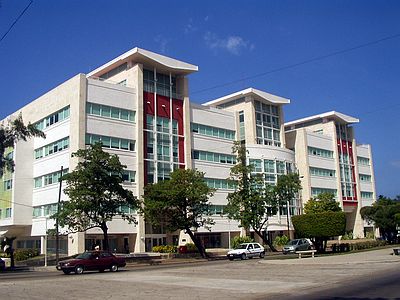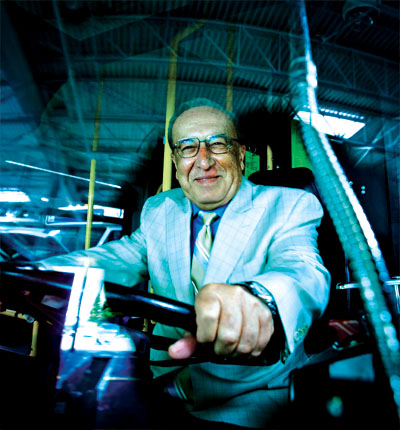By Marc Frank | Reuters –
HAVANA (Reuters) – Cuba has shut down one of the most important western trading companies in the country as an investigation into alleged corrupt import-export practices broadened to a second Canadian firm, foreign business sources said on Friday.
State security agents on Friday watched who entered the building in Havana’s Miramar Trade Center where Ontario-based Tokmakjian Group, one of the top Canadian companies doing business on the communist-run island has its offices. The company offices of the fourth floor were sealed with a notice that it had been closed by Cuban State Security. “We received notice on Monday from the foreign ministry and the Council of State, which is the procedure in such cases, to stop all dealings with the Tokmakjian Group,” said an employee of a Cuban company that does business with the firm. Like other people who spoke to Reuters about the clampdown on the company, she asked that her name not be used.
Miramar Trade Center
Tokmakjian Group is estimated to do around $80 million in business annually with the Caribbean island, mainly selling transportation, mining and onstruction equipment. The company is the exclusive Cuba distributor of Hyundai, among other brands, and a partner in two joint ventures replacing the motors of Soviet-era transportation equipment. Company officials were not immediately available for comment.
Cuban authorities shut down Canadian firm Tri-Star Caribbean on July 15 and arrested company president Sarkis Yacoubian. The company, considered a competitor of Tokmakjian Group, did around $30 million in business with Cuba. “Apparently Tri-Star Caribbean was just the beginning. They brought in more than 50 state purchasers for questioning, arrested some of them and broadened the investigation from there,” a western businessman said. “As far as I know up to now just Canadian firms are involved, but you can bet every state importer and foreign trading company in the country is on edge,” he said.
Cuban President Raul Castro has made fighting corruption a top priority since taking over for his ailing brother Fidel in 2008, and in the past year a number of Cuban officials and foreign businessmen have been charged in graft cases.
Tri-Star Caribbean did business with around half of the 35 Cuban state companies authorized to import, from tourism, transportation and construction to the nickel and oil industries, communications and public health. The whereabouts of the man who founded the family business, Cy Tokmakjian, of Armenian heritage, born in Syria and educated in Canada, was not clear on Friday.He was last seen by Reuters a week ago, the day after his offices were sealed, but another western businessman said he had been detained by Cuban authorities. “They picked up Cy on Saturday and I heard his wife and at least one of his kids flew ion to see what they could do,” he said.
Cuba’s state-run media rarely reports on corruption related investigations until they are concluded and those charged are sentenced.
Tokmakjian, a former mechanic, is a self-made millionaire with interests in Canada and other countries besides Cuba, where he is a well known figure. He made his first deal with the Caribbean island in 1988.
President Castro, a general who headed Cuba’s Defense Ministry for 49 years, has cracked down on corruption as part of his efforts to revive the country’s sagging economy, but to date has done little to change the conditions that foster it, such as low salaries and lack of transparency. There is no open bidding in Cuba’s import-export sector and state purchasers who handle multimillion-dollar contracts earn anywhere from $50 to $100 per month.
Castro has moved military officers into key political positions, ministries and export-import businesses and in 2009 stablished the Comptroller General’s Office with a seat on the Council of State. A source close to the Tri-Star Caribbean case said the Comptroller General’s Office had been brought into the investigation, indicating it most likely was targeting high level officials.
Castro’s crackdown has resulted in the breaking up of high-level organized graft in the civil aviation, cigar and nickel industries, at least two ministries and one provincial government. An investigation into the communications sector and another into shipping are also under way.



